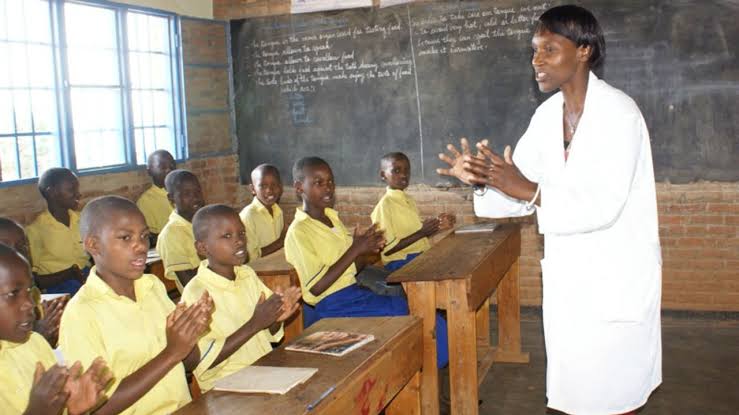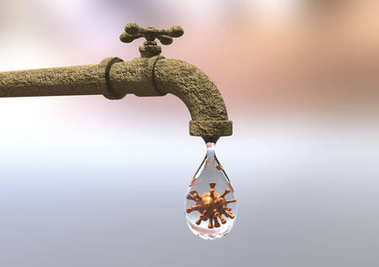The concept of public health and safety is one that concerns everyone, regardless of age, occupation, religion, or any other form of physical, social, or economic division. An individual is only as healthy as their environment, meaning that whatever you are doing to keep yourself safe and healthy has to be done or practiced by others living within that community. This is why shared knowledge is very important. People who are living in a town, state, or country must collectively know what to do and how to do it. Only this type of shared knowledge can be very helpful in keeping people healthy. That is where health education comes into the picture.
Health education deals with teaching and informing people about everything concerning health, reinforcing positive health behaviours. Health education encompasses a lot of things all centred around the individual and the environment.
Through health education, an individual becomes exposed to the realities of diseases, sicknesses, germs, dirt, but, most importantly, they also learn how to take care of themselves, what to do to prevent those diseases, and what to do if they get sick or ill. Health education also includes mental health awareness, which lets people understand that although they may look physically sound, there may still suffer from mental health problems, environmental health, emotional health, and sexual health are other branches of health education that people get to understand with time.
In Nigeria, health education has some level of attention and is taken quite seriously, especially in the educational sector, where It is added to the educational curriculum and introduced to kids right from basic school. There, kids between the ages of 2 – 10 are taught the importance of washing their hands, personal hygiene, diseases, injuries, first aid, and other basic concepts of physical health. Health education is also taught in some form in junior secondary schools, mainly delving deeper into what they were taught in basic school and introducing certain new topics, especially bordering around emotional and sexual health.
Sadly, that is where most of it ends, and it would not be wrong to say that many Nigerians today got their knowledge of health education from schools and their parents. While that in itself is not a bad thing, it creates a problem because there is still a large space that is unfilled; what happens to those who are not opportune to receive basic education? It would be wrong to assume that every Nigerian between the ages of 2 – 10 currently has access to basic education, and even many that do are not being taught right.
There are many problems with health education in Nigeria today, and this is contributing to the health crisis currently in the country as you have millions of people who do not know basic concepts of health education, therefore not knowing what to do in certain emergencies.
The problem of health education include the following:
Access To Basic Education
Not every Nigerian has had the luck of basic education, with many people starting in the informal education sector, learning a trade as early as 4 – 5 years. Such people skip many developmental aspects of their lives, like being introduced to basic concepts of health education.
Unfortunately, that phase may never be covered. But it is not as if many people willingly refuse to go to school; rather, they may not have any school around them. Some children are forced to trek miles every day under the scorching sun just to get to school. Most times, the school does not make the struggle worth it as it may lack basic amenities or even insufficient furniture.
More people would be introduced to health education if they go to school. For that to happen, more schools have to be built within a reasonable trekkable distance and have to be fitted with structures and amenities that would make the pupil happy to resume every day.
Poverty
The problem of poverty is a hindrance on many levels. Nigeria, being the poverty capital of the world, has a lot to do in that aspect. Many people go days without eating and live in abject squalor with no hope in sight. For such people, health education would be the least of their worries. Even if they take care of themselves, their environment would always take a toll on them. A recent example was during the recent coronavirus pandemic when a lockdown was enforced with a 24-hour curfew. It would be unthinkable that people who have to struggle to feed each day would adhere to such an announcement, which would only feel like punishment to them. It is no wonder why poor people are the victims of many deadly diseases through no direct fault of theirs.
That is why the country has to take the question of the poor into accounts at all times. Policies should be in place to alleviate their burden. Health programs have to be created to reach the poor and vulnerable in a way that they would easily understand and adopt.

Funding
Funding is also another problem that plagues health education in Nigeria. The health sector, like many other sectors in Nigeria, is grossly underfunded. This affects so many things, including the hospitals and health centres, as well as the doctors and other health personnel. This creates a problem for health education as it is heavily dependent on the health sector. Lack of funding means they would not be able to conduct enough outreach and awareness programmes, and it would be generally difficult to motivate those who should be handling such activities.
Weak Policies
Health education in Nigeria also suffers from weak policies. Many of the policies being drafted today do not represent the reality of things as they are, or they are not just effective. This means that all health education programmes would revolve around these policies and would be weak as well, not achieving the desired effect. In his book “Matter Arising in Health Education“, Dr. Dapo Ogunsina wrote about problems of health education in Nigeria. He stated that the government gave little attention to health education in Nigeria. He also cited that lack or shortage of qualified personnel was one of the problems of health education in Nigeria.
Collins Nwokolo is a human physiologist, writer and health enthusiast. He loves writing helpful articles on health and fitness, which he enjoys sharing with everyone.









